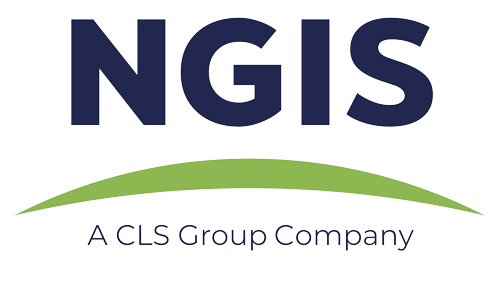Our History
CLS: For Earth, from Space
Space-based solutions to study, protect the planet, and manage its resources sustainably
Explore our journey through the years
1986
Founding of CLS
- CNES creates CLS to operate and manage the Argos data collection and location system.
A pioneering team of 25 in Toulouse and at CLS America (our first subsidiary) acquire, process, validate, and distribute data from a hundred Argos oceanographic buoys for the international scientific community.
Explorer partnership
- On May 11, 1986, French doctor and explorer Jean-Louis Etienne becomes the first person to reach the North Pole solo by sled.
His achievement is officially verified thanks to CLS and the Argos beacon he carried with him.
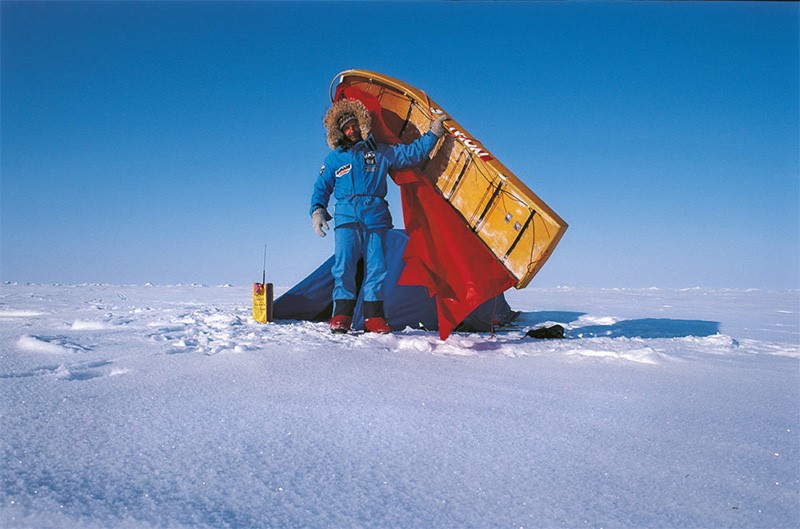
First wildlife tracked by satellite
- The late ’80s also mark the beginning of animal tracking by satellite. Polar bears, caribou, and albatrosses equipped with Argos collars or “backpacks” are monitored across the ice floes, the Canadian North, and southern oceans.
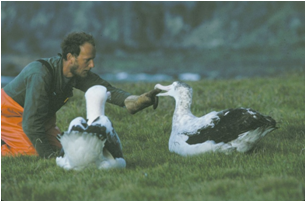
1990
Satellite oceanography begins
- CLS opens its doors to oceanographers and remote sensing experts to deepen understanding of our ocean environment.
Going international
- CLS begins to expand globally with partnerships in Japan (Cubic-I), South Korea (KL Trading), and Chile (CUNLOGAN).

1991
Laying the foundation for sustainable fisheries
- Asian drift net fishing threatens Pacific biodiversity. CLS, at the UN’s request, equips and monitors vessels to limit environmental impact.
Advances in precise positioning
- The 1990s see major developments in space technology, including the birth of the DORIS satellite system. CLS processes the first data from DORIS to precisely determine satellite orbits for oceanographic missions.
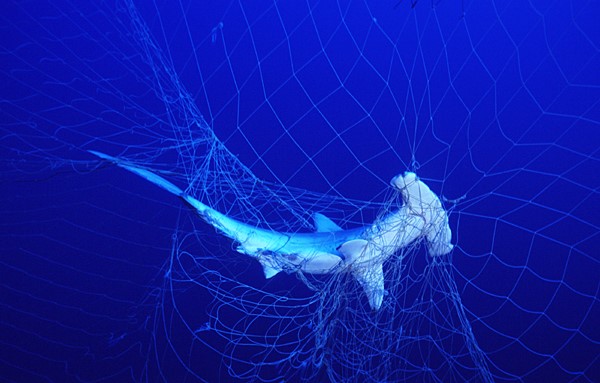
1992
Launch of TOPEX/Poseidon
- With this satellite launch, ocean topography research is transformed. Today, more than 100 remote sensing, altimetry, geodesy, and oceanography specialists drive CLS’s space oceanography work.
Our experts now routinely monitor sea level, surface and subsurface currents, and ocean fronts.
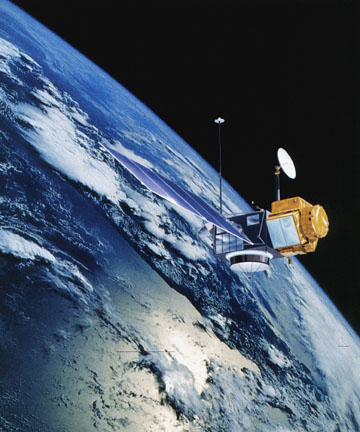
1996
CLS plays a key role in a dramatic rescue
- Vendée Globe skipper Raphaël Dinelli’s boat capsizes in the roaring forties. Alone on the hull of his boat in the freezing ocean, he clings to survival. His only lifeline is an Argos beacon around his neck. After 36 hours, with eyes burned and hands frozen, he is located by CLS and rescued by another sailor.
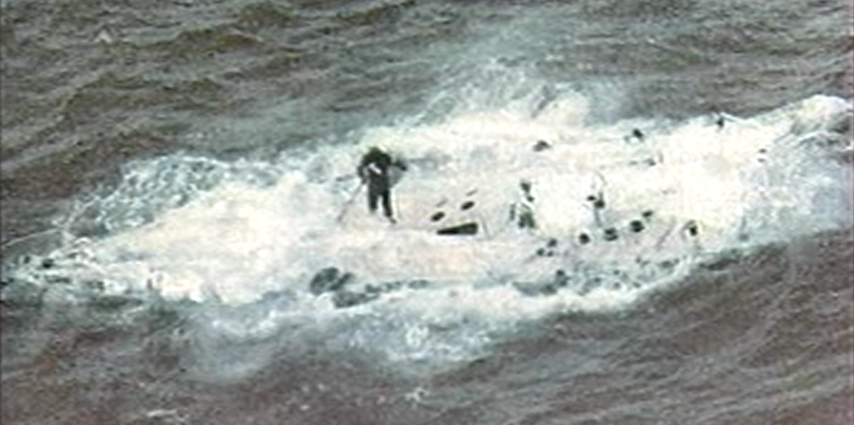
1997
Sea levels are rising, and CLS has the data!
- Climate change is not yet a mainstream topic, but CLS oceanographers confirm that global sea level is steadily increasing.
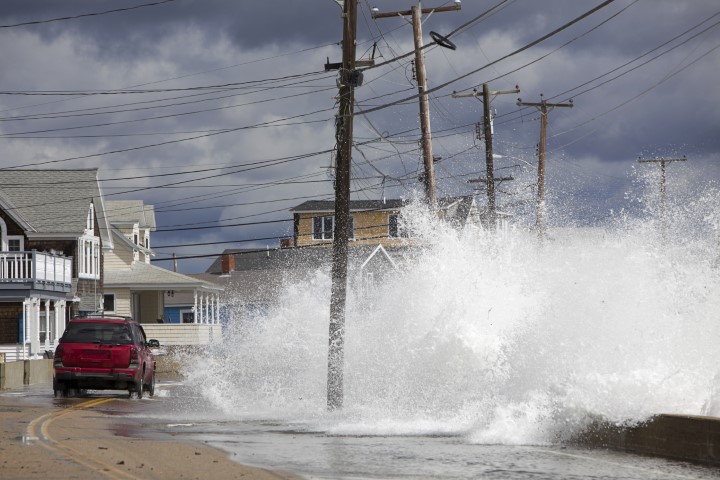
1998
CLS expands to Peru
- Overfishing, particularly of anchovies and sardines, threatens Peruvian fisheries.
Authorities ask CLS to equip fleets with Argos beacons and help establish a national monitoring center for sustainable fisheries management.
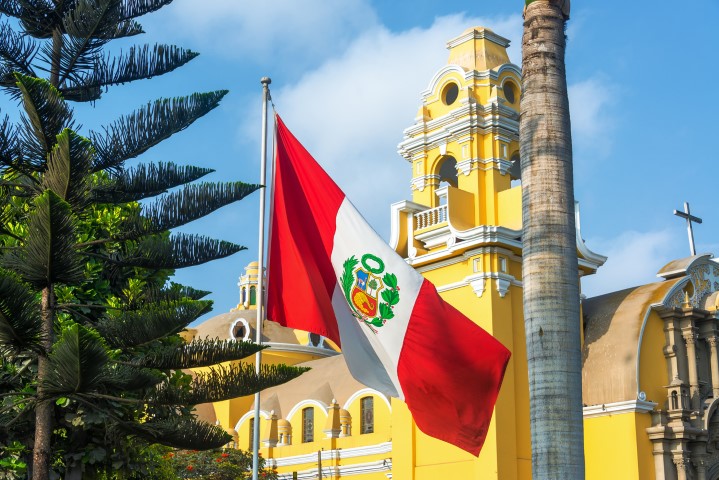
2000
Entering Russia
- As international efforts grow to monitor fisheries, Russia seeks to equip its fleets with satellite tracking beacons.
CLS signs a partnership with ES-PAS to deploy its solutions in Russia.

2002
Optimizing waste collection
- Waste management becomes a global challenge.
CLS develops EAZY COLLECTE, a solution for optimizing and managing household and industrial waste collection operations in real time.
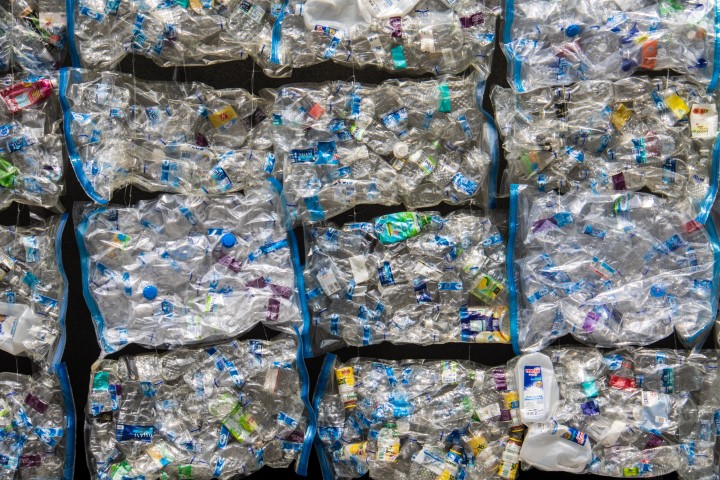
Christophe becomes CEO of CLS
- After climbing the corporate ladder one rung at a time since 1986, Christophe Vassal took the reins of CLS as CEO.
A passionate and visionary engineer, his career is intertwined with the history of Argos and the company’s international transformation, embodying the new generation of leaders focused on innovation and sustainable growth.
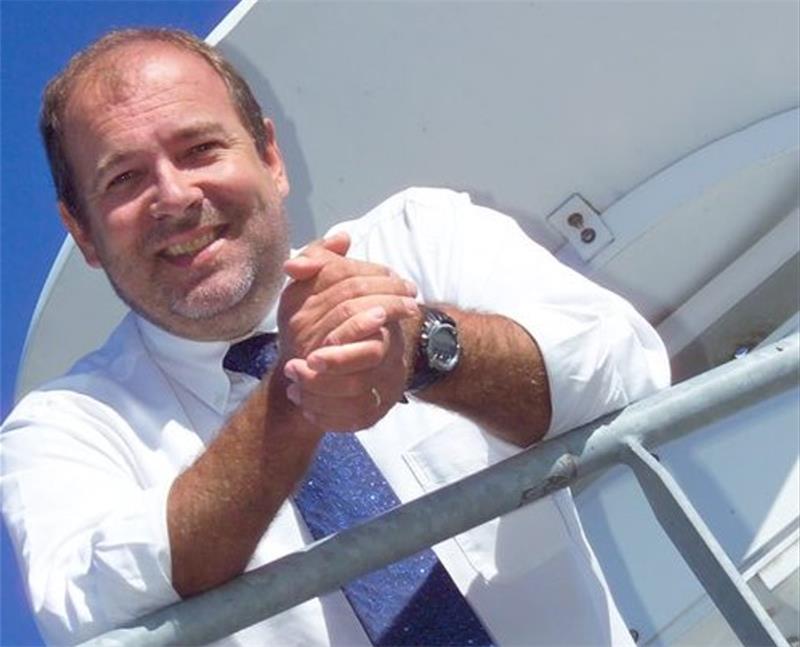
2003
Fighting illegal fishing
- In the Kerguelen archipelago and the French Southern and Antarctic Territories, illegal fishing has devastating effects on biodiversity and the fishing economy of Réunion Island.
At the direct request of the French President, CLS uses radar satellites to detect the illegal fishing vessel Apache. This radar-based detection system proves highly effective and puts an end to this destructive practice.
CLS opens in Indonesia
- With its 17,000 islands, the Indonesian archipelago bases a significant part of its economy on the exploitation of marine resources. Countless fishers and fishing families depend on the sea for their livelihood. To help sustain this strategic activity, the Indonesian government turns to CLS to equip 3,000 fishing vessels with satellite-based tracking beacons.
Keen to respond quickly and effectively, CLS creates its Indonesian subsidiary, CLS Indonesia. Today, it employs 45 people and has expanded its activities across all five of CLS’s strategic sectors.
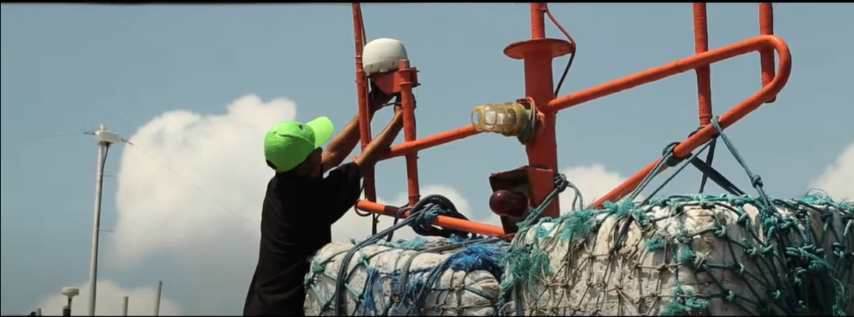
2005
Tracking oil spills
- In the Mediterranean, a hydrocarbon spill is detected for the first time thanks to CLS’s radar services — a breakthrough in maritime surveillance.
CLS quickly becomes a recognized expert in hydrocarbon pollution detection and delivers a unique service to the European Maritime Safety Agency (EMSA). Within 10 years, this collaboration contributes to halving the amount of oil pollution in European waters.
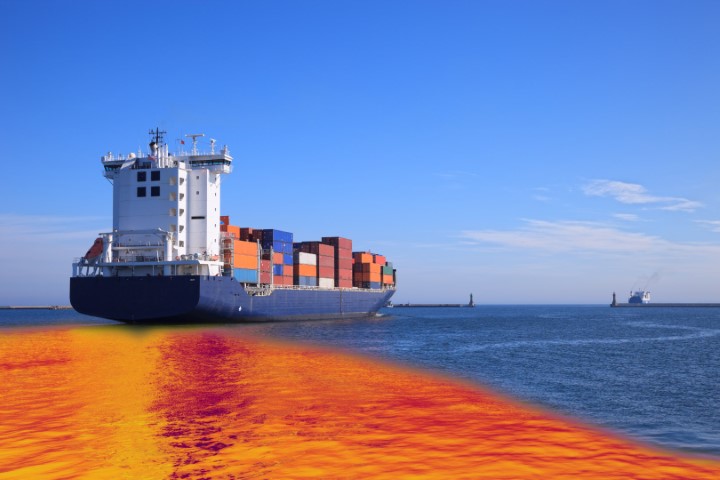
2006
CLS is now capable of forecasting marine population
- CLS’s fisheries scientists, particularly specialists in tuna species, are now able to predict long-term population trends. CLS supports fishing stakeholders in implementing responsible, sustainable management of marine resources.
The forecasting models developed by CLS integrate environmental conditions, pollution levels, fishing effort, and climate change into their analyses.
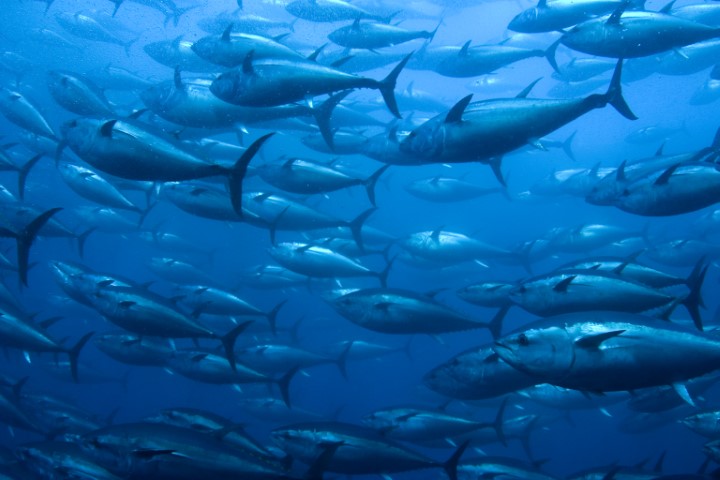
2007
CLS: a key witness to the impacts of climate change
- For the first time, the experts of the Intergovernmental Panel on Climate Change (IPCC) use the sea level rise curve calculated by CLS and its partners (CNES and LEGOS) to alert policymakers about the urgent need to act on accelerating global warming.
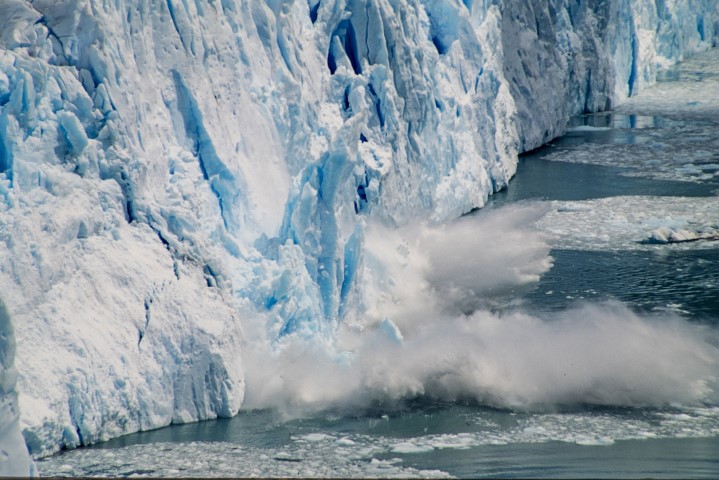
2009
Creation of CLS Brest and inauguration of the VIGISAT station
- CLS establishes a new radar division in Brest and inaugurates VIGISAT, the first French civilian station capable of receiving and processing very high-resolution radar satellite data.
This operational facility enables near real-time detection and surveillance of maritime activities, reinforcing France’s ability to monitor its vast maritime domain and detect illegal or suspect behavior at sea.
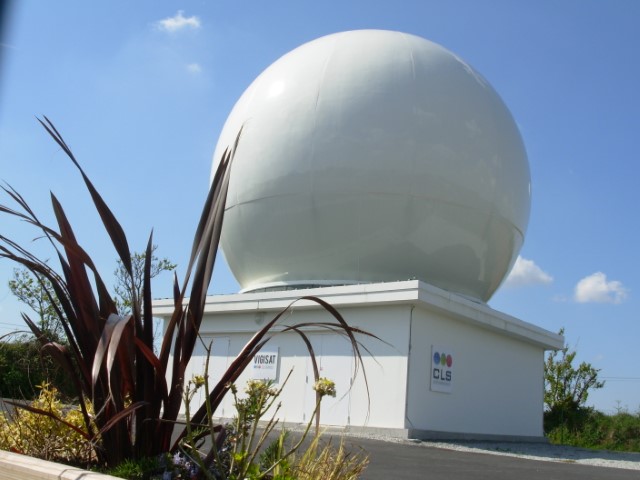
2010
Acquisition – CLS strengthens its radar capabilities with ALTAMIRA
- CLS announces the acquisition of ALTAMIRA INFORMATION, a Spanish company based in Barcelona, specialized in millimetric ground motion measurement using radar satellite imagery. This acquisition allows CLS to expand its radar offer into land monitoring applications. It further establishes CLS as a key player in global Earth observation. The company processes over 15,000 radar images each year and delivers its solutions across numerous countries.

2012
Acquisition – CLS strengthens its presence in Brazil
- CLS acquires PROOCEANO, a Brazilian company based in Rio de Janeiro and specialized in offshore environmental services. This acquisition allows CLS to consolidate its teams and operations in Latin America, particularly in support of industrial clients in the oil and gas sector.
PROOCEANO brings local expertise and strengthens CLS’s positioning on strategic offshore challenges.
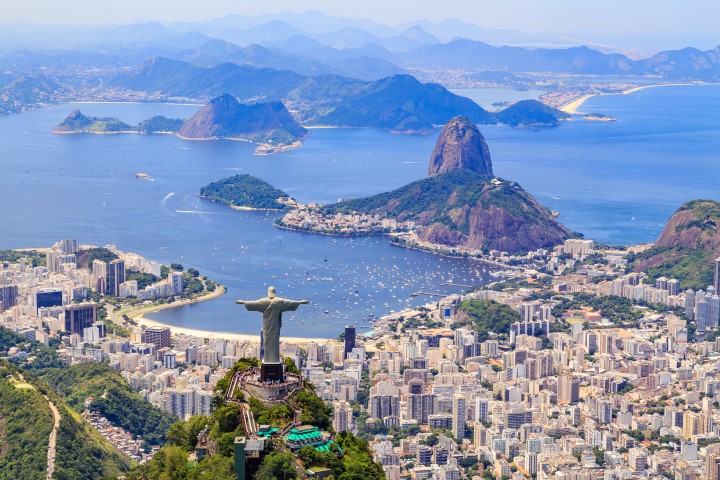
CLS ventures into proton storm forecasting
- Even though the Sun makes life on Earth possible—providing energy, enabling photosynthesis—it also poses a significant threat. There is a one-in-eight chance that Earth could be struck by a catastrophic solar storm by 2030.
As early as 2012, CLS is tasked, first by the French Space Agency (CNES) and then by the European Space Agency (ESA), to develop forecasting capabilities for proton storms generated by our star’s turbulent activity.

2013
Acquisition – CLS expands its smart waste collection activities by acquiring EXEO Solutions
- EXEO Solutions is a company based in the Southwest of France. Specialized in geolocation of household waste bins using GPS, its main strength lies in an advanced route optimization algorithm that helps reduce fuel consumption and improve operational efficiency.
This acquisition strengthens CLS’s waste management activities, which at the time monitored more than 5,000 vehicles worldwide. Today, over 30,000 vehicles are tracked by CLS.
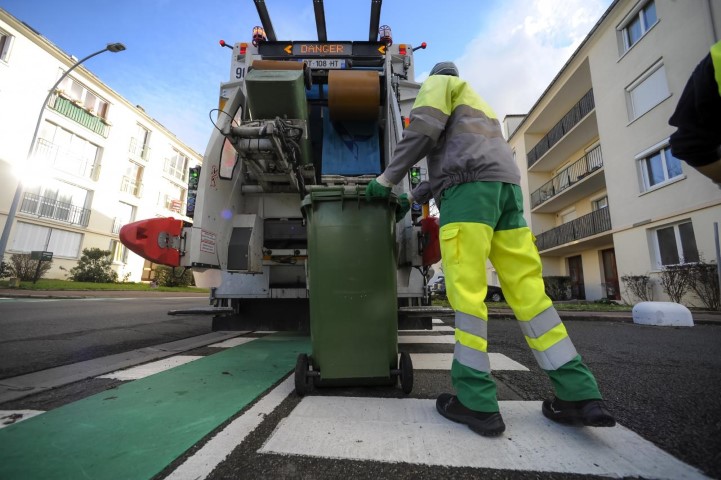
2015
Historic contract – CLS to monitor Grand Paris construction from space
- 200 kilometers of new metro lines, 68 new stations, and 15 years of construction — the Grand Paris Express is a monumental project.
For the first time in history, such an infrastructure effort is monitored from space. CLS measures the impact of tunnel boring on Paris’s unique architecture with millimetric precision.
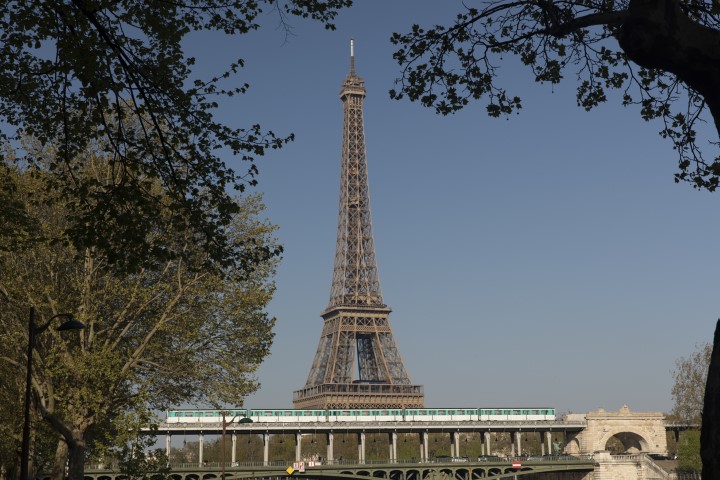
Acquisitions – CLS acquires TRE in Italy & Canada, and Horizon Marine in the USA
- CLS’s external growth strategy is in full swing. This year, two acquisitions strengthen its capabilities.
The acquisition of TRE bolsters our land radar surveillance operations, positioning CLS as the global leader in millimetric ground deformation measurement using satellite radar imagery.
The acquisition of Horizon Marine expands our presence in the United States and reinforces our standing in offshore oil and gas services.

Climate change – CLS at COP 21
- At COP 21 in Paris, CLS is invited to present its environmental and climate solutions to the President of France, François Hollande, at the CNES Climate Dome.
Our offerings include biodiversity monitoring, sea level rise indicators — a key metric for climate change — carbon footprint mitigation tools, and resilience services. CLS’s suite of solutions is unique.
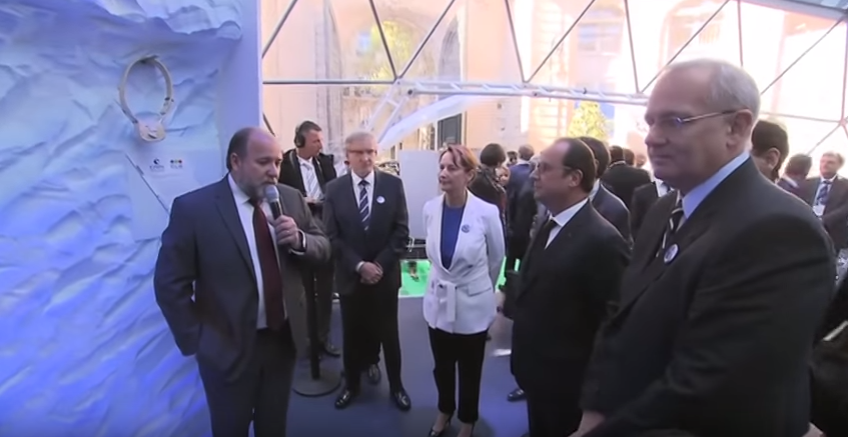
2016
Drones for detecting pollution
- CLS secures two major contracts with the European Maritime Safety Agency (EMSA).
The first involves deploying an innovative drone-based service for detecting hydrocarbon pollution in European maritime zones. The second covers the provision and management of the data center receiving imagery from EMSA’s drone fleet, used to combat trafficking and illegal fishing.
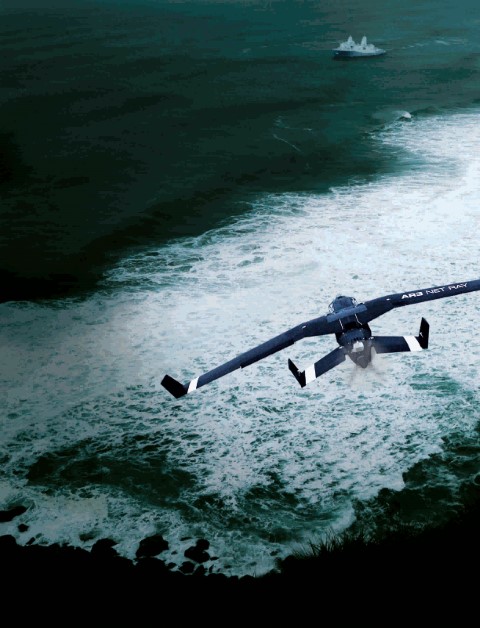
2017
Acquisition – CLS acquires U.S.-based Woods Hole Group
- CLS announces the acquisition of Woods Hole Group, a U.S. company specializing in coastal engineering, applied ecology, oceanography, and environmental monitoring systems.
With this acquisition, CLS reinforces its position as a global leader in environmental services.
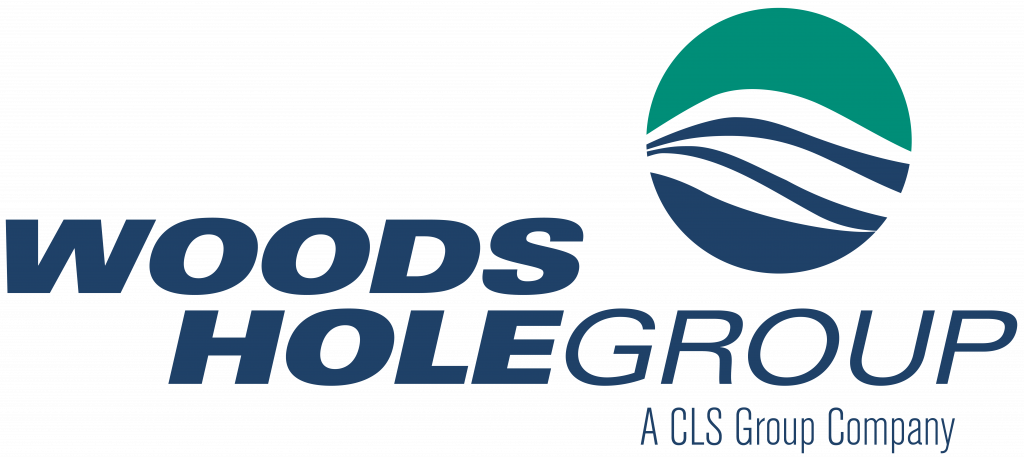
Acquisition – CLS acquires English company Fulcrum
- At the end of 2016, CLS joins forces with Fulcrum Maritime Systems (FMS) to become a leading global provider of maritime surveillance services.
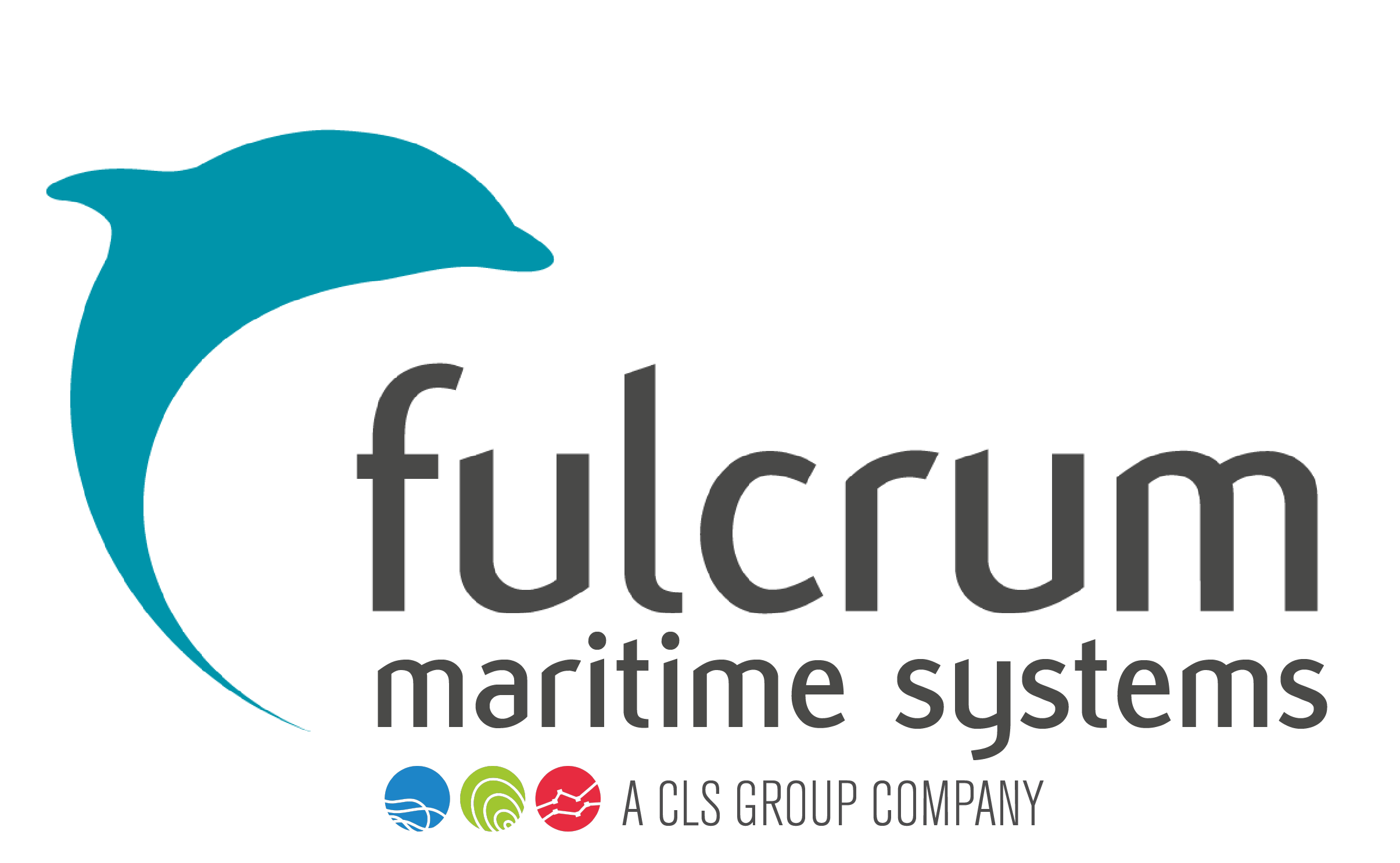
Acquisition – CLS acquires Frech company SIRS
- CLS announces the acquisition of SIRS (Systèmes d’Information à Référence Spatiale), a French company based in Lille and founded in 1989. SIRS specializes in producing geospatial data from satellite or aerial imagery.
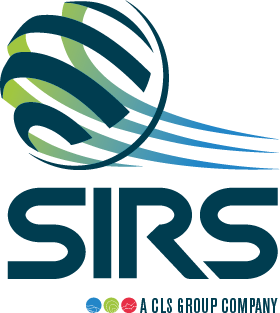
2018
Creation of KINEIS
- With support from CNES, CLS launches a new subsidiary: Kinéis.
As a major new player in France’s NewSpace sector, Kinéis deploys Europe’s first constellation of nanosatellites to democratize access to global connectivity (IoT).
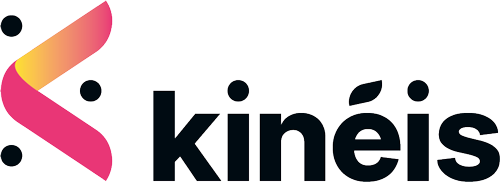
2019
Grand Lyon project: Mapping urban nature
- In 2018, Grand Lyon launches a project to identify natural spaces in the city for preservation.
To support this initiative, it selects CLS, a geospatial data expert with 30 years of experience.

Sargassum alert
- CLS delivers a satellite-based solution to address the regional sargassum crisis.
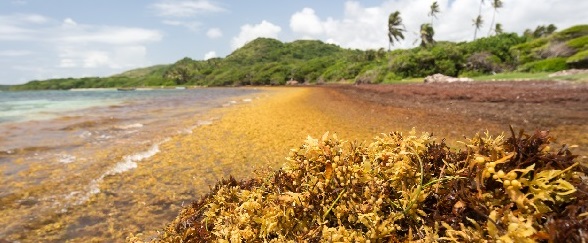
The United Kingdom has entrusted us
- The United Kingdom has chosen our expertise to install its fisheries monitoring center, one of the largest in Europe and a great source of pride for our company.
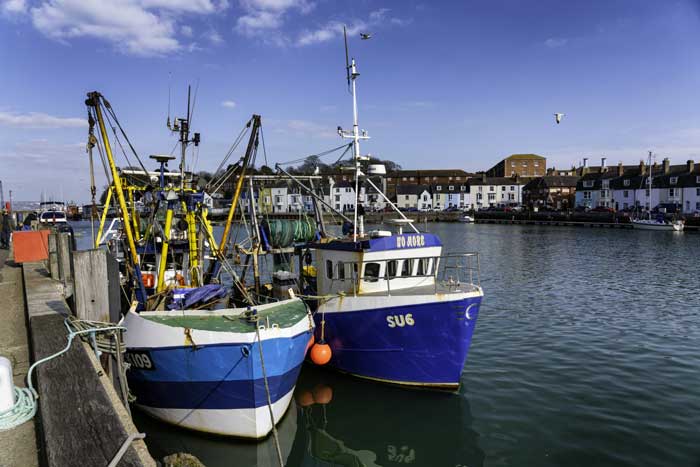
Myanmar has called on our expertise
- Myanmar has chosen CLS to equip more than 1,000 fishing vessels, marking a major sustainable fisheries management contract for CLS’s presence in Asia.
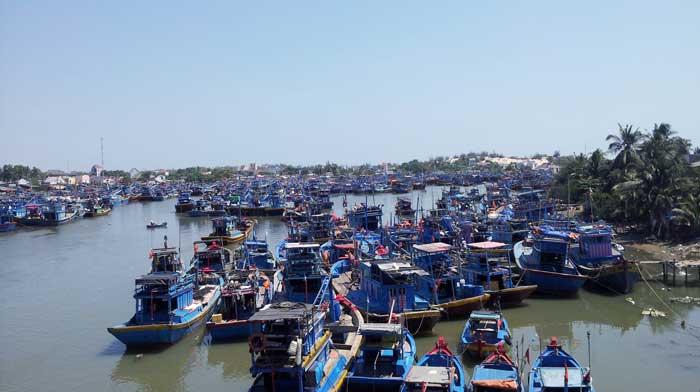
Strengthening Maritime Sovereignty with MAS
- In the Dominican Republic and in the Indian Ocean Commission area, where sovereignty challenges and trafficking issues are pressing, our Maritime Awareness System (MAS) has been adopted to strengthen surveillance capabilities.
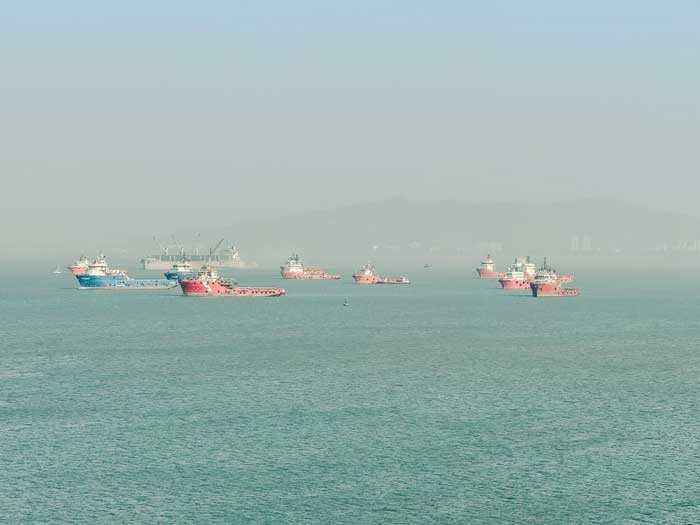
Novacom Services becomes part of CLS
- This year we are also integrating our subsidiary NOVACOM Services, specialized in connecting mobile fleets, into CLS as our Fleet Management Business Unit, which will later evolve into the Mobility Business Unit.
2020
CNP joins CLS’s shareholding
- CNP acquires a majority stake in CLS, alongside CNES, the founding institution, which retains a significant minority share.

€100 million fundraising for Kinéis
- Kinéis secures €100 million to fund its IoT-dedicated nanosatellite constellation.
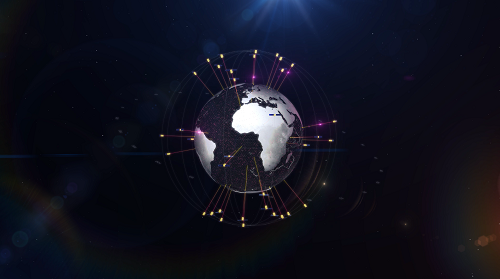
Indonesia selects CLS for its national marine meteorology system
- To meet the country’s ambition of enhancing maritime safety and growing its marine economy, Indonesia’s meteorological agency BMKG selects CLS to deploy an unprecedented national marine meteorology system across the archipelago’s maritime territory.
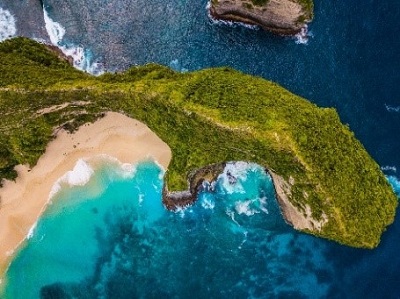
2021
MSI and Lwandle join the CLS Group
- CLS announces the acquisition of MSI and Lwandle, two companies based in South Africa, now operating under CLS Southern Africa. Their office in Tasmania joins CLS Oceania.

Acquisition – CLS acquires Meteodyn
- CLS acquires Meteodyn, a company specializing in wind engineering, meteorology, and climatology. Meteodyn develops software and services for renewable energy, urban planning, and wind safety sectors.
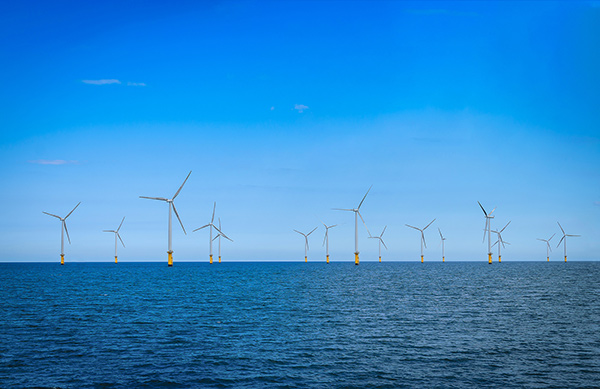
2022
Space-based hydrology
- Since 2015, CLS has leveraged its altimetry expertise to support water studies and resource management. Over 20,000 sites are monitored from space by teams at CLS’s headquarters in Toulouse. Each observation includes water height, and in some cases, volume and flow, measured in near real-time.
In 2022, with the launch of the SWOT satellite, CLS experts are at the heart of validating the mission’s first data. With its 21-day revisit time, SWOT becomes a key asset in the altimetric constellation powering both real-time and climate-level water services, managed by CLS on behalf of the European Commission.
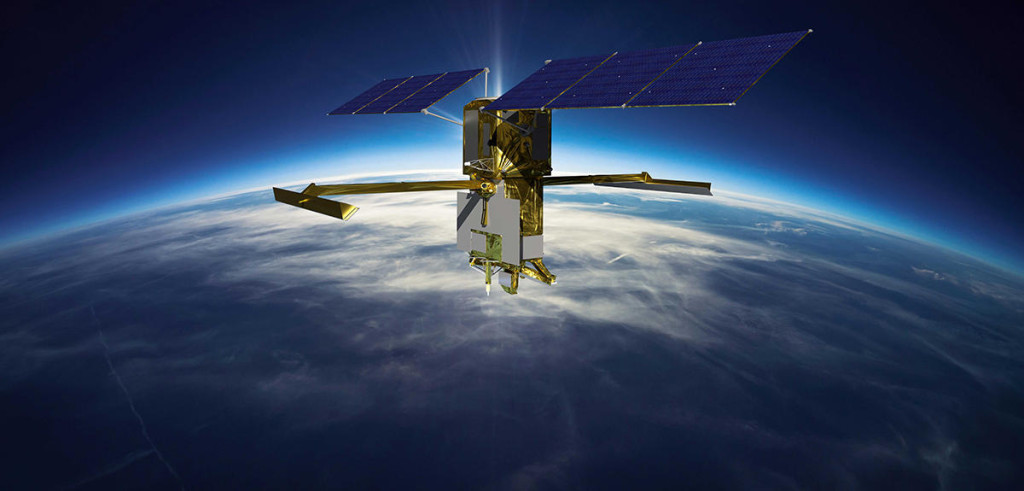
Support to traditional fisheries
- CLS deploys its first large-scale beacons dedicated to small-scale fisheries. Thousands of pirogues and coastal vessels are now equipped with NEMO, a beacon developed entirely for these fisheries.
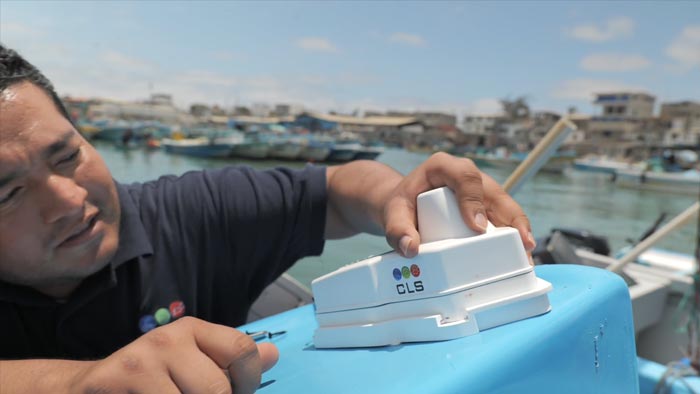
2023
Acquisition – CLS reinforces its leadership in maritime safety
- CLS strengthens its leadership in maritime surveillance by acquiring Brazilian companies SAT ONE and PRIME. The group also signs three strategic contracts with India, Thailand, and Sri Lanka for the supply of its MAS maritime domain surveillance solution.
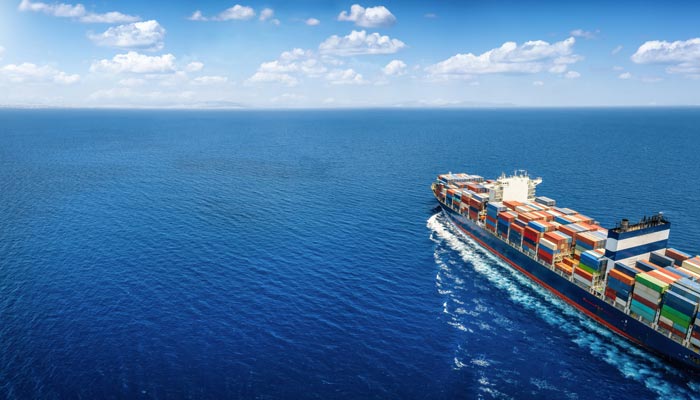
2024
Acquisition – CLS expands environmental solutions and establishes a presence in the Middle East with the acquisition of EIS-ME
- EIS-ME brings expertise in ambient air quality monitoring, indoor noise tracking, and industrial emissions control. This acquisition not only strengthens CLS’s environmental protection portfolio, but also marks the company’s first footprint in the Middle East.
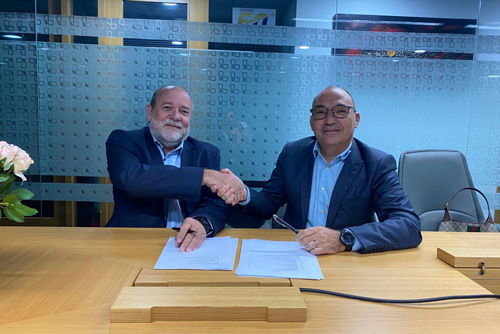
New generation of Argos services launched with Kinéis constellation
- CLS’s Space IoT partner Kinéis, in collaboration with Rocket Lab, successfully launches the first five satellites of a 25-satellite constellation.
These next-generation satellites carry innovative IoT payloads designed to revolutionize space-based connectivity. Integrated into the Argos services, they will enable CLS to deliver near real-time global connectivity.
This technological leap paves the way for a new generation of environmental monitoring and sustainable fisheries solutions.

Acquisition – Quiet-Oceans joins CLS
- Quiet-Oceans, a French leader in assessing the impact of underwater noise on marine life, joins CLS.
This acquisition marks a major milestone in CLS’s commitment to protecting marine biodiversity and reducing ocean noise pollution.
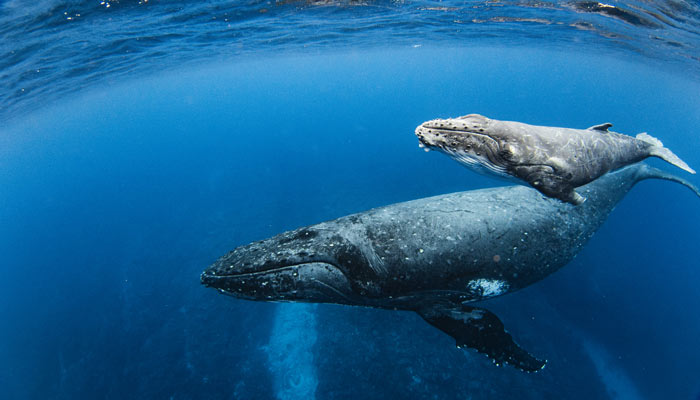
2025
CLS signs the largest contract in its history: MMS2 with Indonesia
- CLS signs the second phase of a major agreement with the Indonesian Meteorology, Climatology and Geophysics Agency (BMKG) to develop the next-generation Marine Meteorological System (MMS) across Indonesia.
CLS at UNOC 2025 for the future of the Oceans
- From June 4 to 13, 2025, CLS takes part in the UN Ocean Conference (UNOC) in Nice and Monaco.
Alongside official delegations, institutional actors, scientists, and NGOs, CLS reaffirms its commitment to sustainable ocean management in support of the Sustainable Development Goals, particularly SDG 14.
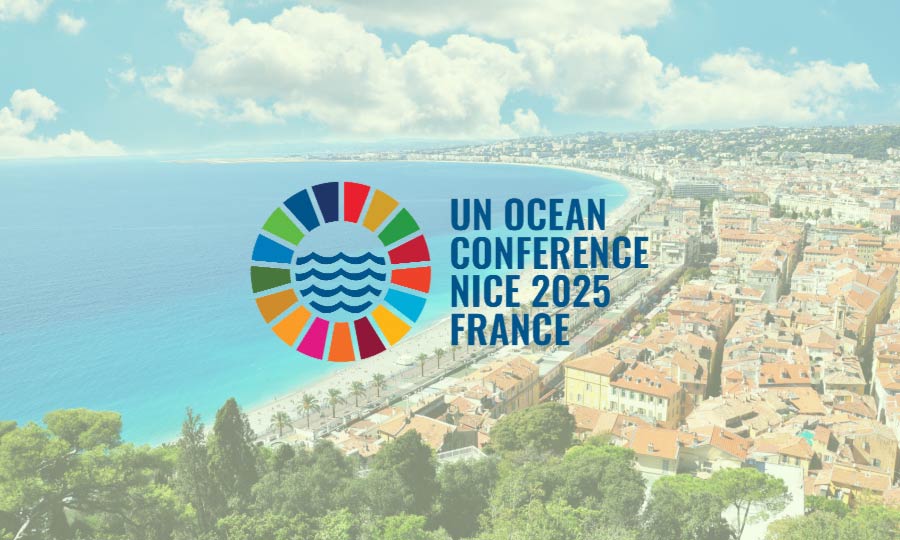
Appointment: Stéphanie Limouzin becomes President of the CLS Group
- With the appointment of Stéphanie Limouzin as its president, CLS is affirming its ambitions: to accelerate its international development, strengthen its technological leadership, and consolidate its position as a pioneer in the French space industry serving the planet.
Vision, commitment, and sustainability will be the pillars of this new governance.
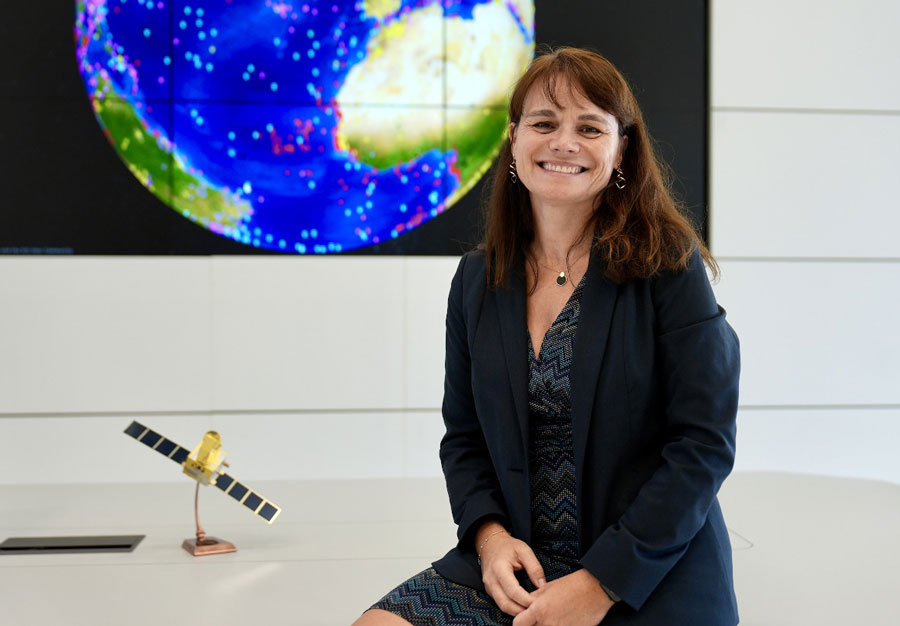
Acquisition: Ground Control joins CLS
- Ground Control, a UK- and US-based specialist in satellite IoT devices and cloud-based monitoring platforms, joins CLS. This acquisition strengthens CLS’s standing as a leader in both technology and environmental responsibility.

2026
Acquisition: CLS acquires Australian company NGIS
- Traceability, biodiversity, resilience: CLS integrates NGIS and expands its geospatial solutions in service of the Planet. The Australian company is specialized in geospatial solutions applied to sustainable resource management, territorial resilience and supply chain transparency.
